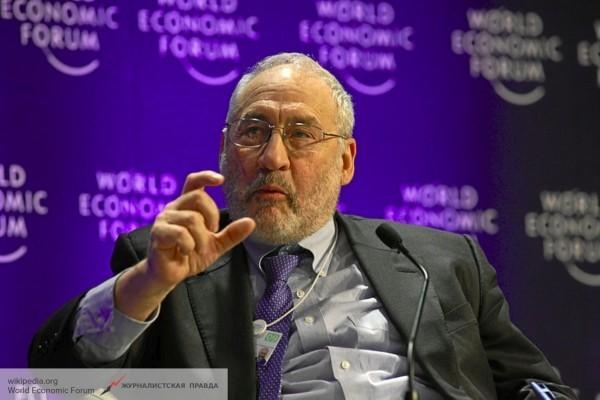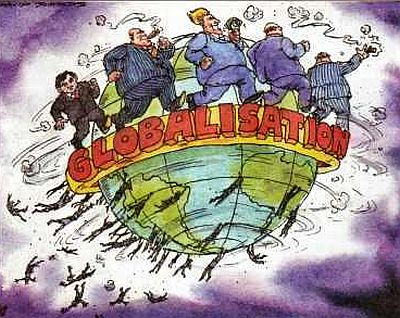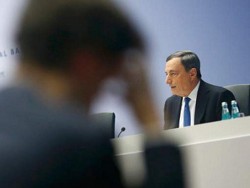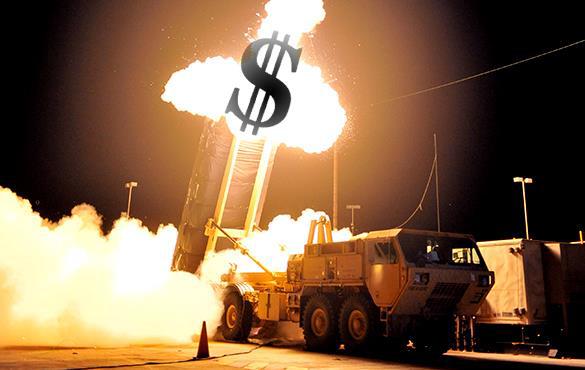
American economist, Nobel prize in Economics 2001 Joseph Stiglitz sure to save the EU economy can only be a rejection of the Euro.
American economist, Nobel prize in Economics 2001 Joseph Stiglitz in an interview with the newspaper “Le Figaro” reported on the conclusions he made in his book, which he will present this week in France and which dealt with a crucial problem for the whole of the Old world: “How to survive Europe in the current crisis?”
According to Stiglitz, no. That is, the “decline of Europe” is inevitable. But salvation is. And can be only one – the rejection of the Euro!!!
“TO LEAVE THE EURO TO SAVE THE EUROPEAN PROJECT”
Released in the UK two weeks ago, the last book Stiglitz has reached, according to the publisher, sales peak. And it’s true: her topic is extremely timely – the future of Europe and, in particular, the Eurozone.
In his book the Nobel prize winner in Economics 2001, lecturer at Columbia University in new York, 73-year-old Joseph Stiglitz offers an unorthodox solution for reform in Europe. For example, a “friendly divorce” with Greece. Or even more original – an exit from the Eurozone of Germany, which he considers the easiest and correct solution.
In an interview with “Figaro” Stiglitz argues that the Euro was supposed to be a means to achieve a certain goal – a more integrated and more prosperous Europe. However, in his opinion, the Euro has become an end in itself. And even became the antithesis of the purpose for which it was intended.
“The problem is that the way it was created, the Euro did not rise to prosperity and development, and gave rise to stagnation and undermined the solidarity between Europeans… I think I may have to leave the Euro to save the European project,” says Stiglitz.
“THE INTRODUCTION OF THE EURO HAS PUT THE CART BEFORE THE HORSE”
According to Joseph Stiglitz, the purpose for which the Euro was created – namely, the investment of trade, it has not reached. And all because the Euro was created at a time when barriers to the movement of goods and services began to disappear:
“With the introduction of digital standards and the proliferation of electronic currency around the world the difficulties associated with external exchanges began to disappear. For example, when I travel Europe I use my credit card, and the price of the transaction is not significant. In the end, of course, the single currency has made the life of businessmen, but this benefit could not compensate for inflicted losses.”
The winner of the Nobel prize for Economics believes that the introduction of the Euro have put the cart before the horse. One of the problems is the common guarantee of Bank deposits. As a result, if, for example, Spain has a banking crisis, the Spanish government only supports banks. If the government is weak, investors will not have confidence in the Spanish banking system. And in terms of the single market and the free movement of capital in such a situation the capital of Spain moving to Germany, making Spain weaker. As a result, Spain becomes poorer and richer Germany.
Although in the beginning it was supposed to be the opposite. Initially it was intended that the money goes from the rich to the poor:
“The original idea of free movement of capital had to support the convergence of economies. But this did not happen. Instead of going top-down, money went against the flow, from the bottom up, thus deepening the gap between poor and rich countries in Europe,” says the American economist.

“THE ECB CANNOT STAY ON ONE MARIO DRAGHI”
Joseph Stiglitz agrees that the President of the European Central Bank (ECB), Mario Draghi has done a wonderful job with the “suggested circumstances”. But a system that relies only on one, albeit a strong personality (Draghi), can not exist.
“I think the biggest mistake the ECB refers to 2010-2011, following the financial crisis, the us Central Bank, the fed, lowered interest rates, have poured money into the economy through “QE” (quantitative easing). This was important because the fed was not obsessed with inflation, and economic growth and employment. At the same time, Jean-Claude Trichet has raised two times the interest rate of the ECB in 2011.
Stiglitz explains that Jean-Claude Trichet – Chairman of the Board of the ECB from 2003 to 2011), did this on the basis of what was considered its primary task of combating inflation:
“If there is any danger of inflation, my role is to raise interest rates to hinder it, he believed”.
But, according to Stiglitz, this is not good for economic growth in Europe.
“This is the ECB’s mandate, which is focused on price stability and not on unemployment and on economic growth, is one of the design flaws of the organizations managing the Euro”, – he believes.

“GERMANY IS THE MAIN OBSTACLE IN THE IMPLEMENTATION OF REFORMS IN THE EUROZONE”
The American economist is sure that the most important is the achievement of greater integration of the currency Union. And the first thing to do is to reform the rules, according to which he lives the Eurozone. Although Europe acknowledges that the need to change, but it moves too slow. And because of this “delay”, in his opinion, it is becoming increasingly difficult to recover your losses.
“The first reform that needs to be done is a General European guarantee of Bank deposits, which I have already spoken. But I see no indication that Europe will soon create such a mechanism”.
But the obstacle to this is the strongest player in the Eurozone – Germany. That it prevents a single guarantee of accounts and conduct of this, the main reform that needs to be done in banks.
The second banking reforms, which need hold, is a common mechanism of Bank resolution, said Stiglitz. And explains with an example:
“If there was a threat of bankruptcy of the world Bank, this has bankrupt Washington state. So if I had to save him, you would have saved that Bank by the U.S. Federal government. Europe needs such a common system of Bank resolution.”
And the third is necessary for the organization of the Eurozone, says Stiglitz, is a joint European Fund against unemployment:
“This Fund will allow us to share, to share the costs with the growth of unemployment” – said the economist.

“FOR THE SINGLE CURRENCY – TOO MANY DIFFERENCES AND DISAGREEMENTS”
However, under existing conditions, these reforms Stiglitz seems very far in the future. So he suggested an alternative: several countries exit the Eurozone and create a few small monetary unions. It explains what benefits could bring this step.
The winner of the Nobel prize for Economics believes that in the current system, too many economic differences and political differences that could have a unified currency:
“Could, for example, be implemented by the rapprochement between the countries of the North, on the one hand, and the countries of the South. However, I offer options for combining two, three or four countries with the same objectives. These countries will return its flexibility.”
Even if these countries in a timely manner nor will be able to create the missing regulating financial institutions, they are able to achieve exchange rate stabilization. And thus prove that they a single currency is possible.

“GERMANY’S EXIT FROM THE EUROZONE – THE EASIEST SOLUTION”
The most correct from the point of view of Stiglitz, he suggests, is a rejection of the Euro such a “locomotive” of the Eurozone, like Germany. And this is not a provocation, he says:
“In economic terms, the easiest solution (as I can’t speak on the political dimensions) is the separation of Germany from the Euro! If Germany abandons the Euro, the currency of countries that will remain the Eurozone will weaken. Thus, they will become more competitive, their exports will increase and also their GDP. On the other hand, Germany will become harder to export. And her overproduce, which is now a problem for the European economy, will disappear.”
If we assume the opposite scenario – to the contrary, Southern countries out of the Eurozone, it would not help to solve the problem of the Eurozone, says Stiglitz:
“They will have debts in euros, which will have to pay, and they will become more severe, as their currency will be weaker, and this can lead to insolvency, as happened to Greece in July 2015. The agreement in July of 2015, only worsened the situation.”
That is why Germany’s exit from the Eurozone is the easiest solution, he said. Because the other Eurozone countries should not continue to suffer because of the fact that Germany refuses to solve problems by mutual help – the path that is currently supported by most economists.

“GREX” AND 100% ELECTRONIC CURRENCY
Joseph Stiglitz provides for “Grex” – that is, a scenario in which the Eurozone goes from Greece. And with the “original idea” – a complete failure of this country from the use of coins and banknotes. And he did not believe that, taking into account the Greek reality, this scenario is “sci-Fi”.
In fact, says American economist that the introduction of a 100 percent electronic currency would facilitate the management of the economy:
“Cash is already obsolete, thing of the past! Before the crisis, in 2015 the Greek government was working on such a solution. Today, the majority of salaries and pensions are paid into Bank accounts. To open a Bank account last who opposes this will not be easy”.
“Figaro” recalled Joseph Stiglitz, his words spoken in connection with Greece:
“The Minister of Economics of Germany Wolfgang schäuble is weak bole economist than any Greek”.
Stiglitz says:
“I do not remember that I used such a strong word. But it’s true – Sobe continues to believe that only a strict savings will result.”








